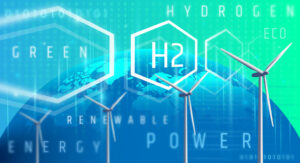 A bipartisan group of federal lawmakers recently introduced a bill aimed at jumpstarting growth in the energy storage sector. If enacted, the Energy Storage Tax Incentive and Deployment Act of 2021 would broaden the investment tax credit program, which is widely credited with stimulating considerable growth in the solar sector, to include standalone energy storage projects. The tax credit is currently only available for energy storage projects that are charged directly from other clean energy projects that qualify for the credit, such as solar. In contrast, the proposed legislation would revise the investment tax credit so that it covers residential battery systems as well as large commercial and utility-scale storage projects, including batteries, pumped hydropower, hydrogen storage, thermal energy storage, and regenerative fuel cells, regardless of whether they are coupled with a qualifying solar project. Expanding the credit to standalone projects is intended to drive investment to storage projects with greater charging flexibility, potentially allowing storage systems to access a larger piece of the energy market.
A bipartisan group of federal lawmakers recently introduced a bill aimed at jumpstarting growth in the energy storage sector. If enacted, the Energy Storage Tax Incentive and Deployment Act of 2021 would broaden the investment tax credit program, which is widely credited with stimulating considerable growth in the solar sector, to include standalone energy storage projects. The tax credit is currently only available for energy storage projects that are charged directly from other clean energy projects that qualify for the credit, such as solar. In contrast, the proposed legislation would revise the investment tax credit so that it covers residential battery systems as well as large commercial and utility-scale storage projects, including batteries, pumped hydropower, hydrogen storage, thermal energy storage, and regenerative fuel cells, regardless of whether they are coupled with a qualifying solar project. Expanding the credit to standalone projects is intended to drive investment to storage projects with greater charging flexibility, potentially allowing storage systems to access a larger piece of the energy market.
The large-scale deployment of domestic energy storage systems is largely viewed as critical to the continued growth of the renewables sector, as well as a key component of achieving the nation’s energy reliability and resiliency goals. While it may be unrealistic to expect that extension of the tax credit to energy storage projects would result in the stratospheric levels of growth enjoyed by the solar industry over the past decade, the tax credit’s proven track record for stimulating renewables development has energy storage advocates hopeful that the proposed legislation would drive significant investment in the sector, resulting in a meaningful increase in energy storage deployment.
 Democratic Senators from West Virginia (Joe Manchin) and Michigan (Debbie Stabenow) have introduced legislation to make billions of dollars available to promote manufacturing related to energy efficiency and renewable energy. According to a press release, the proposed “American Jobs in Energy Manufacturing Act of 2021” would provide up to $8 billion in tax credits to “manufacturers and other industrial users to retool, expand, or build new facilities that make or recycle energy-related products.” Half of those credits are designated for communities adversely affected by closures of coal mines or power plants that have not previously received similar tax credits. Under the proposed bill, credits are available for new construction or retrofitting of existing facilities to produce or recycle a range of energy products including:
Democratic Senators from West Virginia (Joe Manchin) and Michigan (Debbie Stabenow) have introduced legislation to make billions of dollars available to promote manufacturing related to energy efficiency and renewable energy. According to a press release, the proposed “American Jobs in Energy Manufacturing Act of 2021” would provide up to $8 billion in tax credits to “manufacturers and other industrial users to retool, expand, or build new facilities that make or recycle energy-related products.” Half of those credits are designated for communities adversely affected by closures of coal mines or power plants that have not previously received similar tax credits. Under the proposed bill, credits are available for new construction or retrofitting of existing facilities to produce or recycle a range of energy products including:
- advance electric grid, energy storage, and fuel cell equipment;
- equipment for production of low-carbon, low emission fuels, chemicals and other products;
- renewable energy and energy efficiency equipment;
- products or technologies that capture, remove, use, or store carbon dioxide; and
- advanced vehicles, components, and related infrastructure.
The bill is intended to promote creation of domestic jobs that draw on skills possessed by individuals formerly employed in manufacturing, coal mining, or power plant operation. The bill also seeks to promote investment in communities experiencing high unemployment due to coal mine or power plant closures.
 Following the passage of West Virginia Senate Bill 583 in early 2020, West Virginia has seen an uptick in the number of new proposed renewable energy projects. SB 583 established a new incentive program supporting the development of renewable energy facilities on former industrial sites. Berkeley County, in the eastern panhandle, recently announced a proposed 100 MW solar facility to be built on a 750 acre brownfield site previously used as a manufacturing facility. Read more.
Following the passage of West Virginia Senate Bill 583 in early 2020, West Virginia has seen an uptick in the number of new proposed renewable energy projects. SB 583 established a new incentive program supporting the development of renewable energy facilities on former industrial sites. Berkeley County, in the eastern panhandle, recently announced a proposed 100 MW solar facility to be built on a 750 acre brownfield site previously used as a manufacturing facility. Read more.
 The recently approved federal spending bill for 2021 appropriations (December 27, 2020) included extensions to the federal solar investment tax credit (ITC) and wind production tax credit (PTC). The ITC and PTC provide significant financial incentives to the growing renewable energy industry. The ITC is a tax credit that can be claimed on federal corporate income taxes for a percent of the cost of a solar photovoltaic (PV) system that is placed in service. The ITC, which was scheduled to step down from 26% to 22% in 2021, has been extended at its current 26% rate for an additional two years through 2023. The PTC is a per-kilowatt-hour (kWh) tax credit for electricity generated using qualified energy resources including wind, and was scheduled to phase down from 60% of the original credit to 40% in 2021. The new spending bill included an extension of the 60% rate for an additional year through 2021. Projects must be commenced prior to the expiration of the new extension deadlines in order to qualify for the current tax credit rate. Please click here for more information.
The recently approved federal spending bill for 2021 appropriations (December 27, 2020) included extensions to the federal solar investment tax credit (ITC) and wind production tax credit (PTC). The ITC and PTC provide significant financial incentives to the growing renewable energy industry. The ITC is a tax credit that can be claimed on federal corporate income taxes for a percent of the cost of a solar photovoltaic (PV) system that is placed in service. The ITC, which was scheduled to step down from 26% to 22% in 2021, has been extended at its current 26% rate for an additional two years through 2023. The PTC is a per-kilowatt-hour (kWh) tax credit for electricity generated using qualified energy resources including wind, and was scheduled to phase down from 60% of the original credit to 40% in 2021. The new spending bill included an extension of the 60% rate for an additional year through 2021. Projects must be commenced prior to the expiration of the new extension deadlines in order to qualify for the current tax credit rate. Please click here for more information.
 A bipartisan group of federal lawmakers recently introduced a bill aimed at jumpstarting growth in the energy storage sector. If enacted, the Energy Storage Tax Incentive and Deployment Act of 2021 would broaden the investment tax credit program, which is widely credited with stimulating considerable growth in the solar sector, to include standalone energy storage projects. The tax credit is currently only available for energy storage projects that are charged directly from other clean energy projects that qualify for the credit, such as solar. In contrast, the proposed legislation would revise the investment tax credit so that it covers residential battery systems as well as large commercial and utility-scale storage projects, including batteries, pumped hydropower, hydrogen storage, thermal energy storage, and regenerative fuel cells, regardless of whether they are coupled with a qualifying solar project. Expanding the credit to standalone projects is intended to drive investment to storage projects with greater charging flexibility, potentially allowing storage systems to access a larger piece of the energy market.
A bipartisan group of federal lawmakers recently introduced a bill aimed at jumpstarting growth in the energy storage sector. If enacted, the Energy Storage Tax Incentive and Deployment Act of 2021 would broaden the investment tax credit program, which is widely credited with stimulating considerable growth in the solar sector, to include standalone energy storage projects. The tax credit is currently only available for energy storage projects that are charged directly from other clean energy projects that qualify for the credit, such as solar. In contrast, the proposed legislation would revise the investment tax credit so that it covers residential battery systems as well as large commercial and utility-scale storage projects, including batteries, pumped hydropower, hydrogen storage, thermal energy storage, and regenerative fuel cells, regardless of whether they are coupled with a qualifying solar project. Expanding the credit to standalone projects is intended to drive investment to storage projects with greater charging flexibility, potentially allowing storage systems to access a larger piece of the energy market. Democratic Senators from West Virginia (Joe Manchin) and Michigan (Debbie Stabenow) have introduced legislation to make billions of dollars available to promote manufacturing related to energy efficiency and renewable energy. According to a press release, the proposed “American Jobs in Energy Manufacturing Act of 2021” would provide up to $8 billion in tax credits to “manufacturers and other industrial users to retool, expand, or build new facilities that make or recycle energy-related products.” Half of those credits are designated for communities adversely affected by closures of coal mines or power plants that have not previously received similar tax credits. Under the
Democratic Senators from West Virginia (Joe Manchin) and Michigan (Debbie Stabenow) have introduced legislation to make billions of dollars available to promote manufacturing related to energy efficiency and renewable energy. According to a press release, the proposed “American Jobs in Energy Manufacturing Act of 2021” would provide up to $8 billion in tax credits to “manufacturers and other industrial users to retool, expand, or build new facilities that make or recycle energy-related products.” Half of those credits are designated for communities adversely affected by closures of coal mines or power plants that have not previously received similar tax credits. Under the  Following the passage of West Virginia Senate Bill 583 in early 2020, West Virginia has seen an uptick in the number of new proposed renewable energy projects. SB 583 established a new incentive program supporting the development of renewable energy facilities on former industrial sites. Berkeley County, in the eastern panhandle, recently announced a proposed 100 MW solar facility to be built on a 750 acre brownfield site previously used as a manufacturing facility.
Following the passage of West Virginia Senate Bill 583 in early 2020, West Virginia has seen an uptick in the number of new proposed renewable energy projects. SB 583 established a new incentive program supporting the development of renewable energy facilities on former industrial sites. Berkeley County, in the eastern panhandle, recently announced a proposed 100 MW solar facility to be built on a 750 acre brownfield site previously used as a manufacturing facility.  The recently approved federal spending bill for 2021 appropriations (December 27, 2020) included extensions to the federal solar investment tax credit (ITC) and wind production tax credit (PTC). The ITC and PTC provide significant financial incentives to the growing renewable energy industry. The ITC is a tax credit that can be claimed on federal corporate income taxes for a percent of the cost of a solar photovoltaic (PV) system that is placed in service. The ITC, which was scheduled to step down from 26% to 22% in 2021, has been extended at its current 26% rate for an additional two years through 2023. The PTC is a per-kilowatt-hour (kWh) tax credit for electricity generated using qualified energy resources including wind, and was scheduled to phase down from 60% of the original credit to 40% in 2021. The new spending bill included an extension of the 60% rate for an additional year through 2021. Projects must be commenced prior to the expiration of the new extension deadlines in order to qualify for the current tax credit rate.
The recently approved federal spending bill for 2021 appropriations (December 27, 2020) included extensions to the federal solar investment tax credit (ITC) and wind production tax credit (PTC). The ITC and PTC provide significant financial incentives to the growing renewable energy industry. The ITC is a tax credit that can be claimed on federal corporate income taxes for a percent of the cost of a solar photovoltaic (PV) system that is placed in service. The ITC, which was scheduled to step down from 26% to 22% in 2021, has been extended at its current 26% rate for an additional two years through 2023. The PTC is a per-kilowatt-hour (kWh) tax credit for electricity generated using qualified energy resources including wind, and was scheduled to phase down from 60% of the original credit to 40% in 2021. The new spending bill included an extension of the 60% rate for an additional year through 2021. Projects must be commenced prior to the expiration of the new extension deadlines in order to qualify for the current tax credit rate.